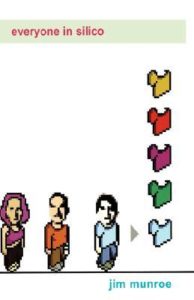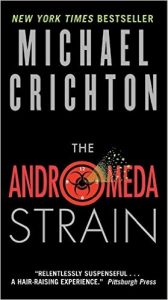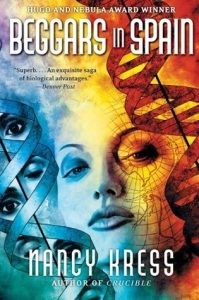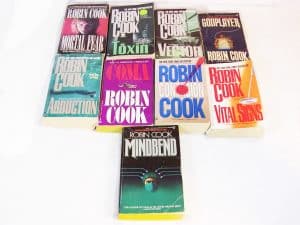Top Ten Fictional Books Featuring Biotech – A Bibliophile’s Must-Read List
This genre goes by many names; Biopunk, Biofiction, Wetware are just some of the more tamer ones. Biotechnology has been one of the top literary devices ever since its inception. The science seemed too surreal, too prone to manipulation and too easy to misuse if it fell into the wrong hands. Backed by hard science but not without its elements of fantasy, here are the top ten fictional takes on biotechnology.
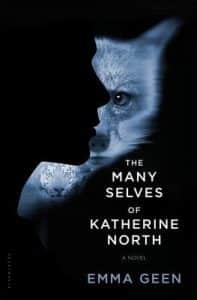
The story follows nineteen-year-old Kit works for the research department of Shen Corporation as a phenomenaut. She’s been “jumping”–projecting her consciousness, through a neurological interface-into the bodies of lab-grown animals in the hope that her work will help humans better understand the other species living alongside them. But when ShenCorp’s mission takes a more commercial–and ominous–turn, Kit is no longer sure of her safety. Propelling the reader into the bodies of the other creatures that share our world, The Many Selves of Katherine North takes place in the near future but shows us a dazzling world far, far from the realm of our experience.
2. Blood Music by Greg Bear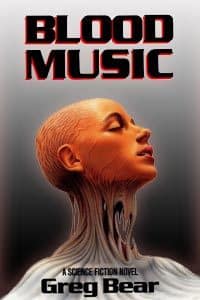
Greg Bear outdoes himself in every aspect of this book. Vergil Ulam has created cellular material that can outperform rats in laboratory tests. When the authorities rule that he has exceeded his authorization, Vergil loses his job, but is determined to take his discovery with him. However, injecting oneself with evolving microcomputers does not always go the way things are supposed to and Ulam finds himself at the centre of attention when he begins to affect not only himself but those around him and the very country itself.
3. T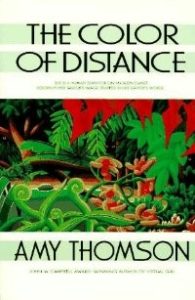
Humans take their very humanity for granted. But what if giving up your humanity was the only thing that would keep you alive? Juna, the sole survivor of a team of surveyors marooned in the dense and isolated Tendu rain forest, an uninhabitable world for humans, is faced with this choice. Her only hope for survival is total transformation–and terrifying assimilation – into the amphibian Tendu species. Juna will learn more about her own human nature than ever before.
4. Everyone in silico by Jim Munroe
In Vancouver in 2036, people are tired of the rain. They’re willing to give up a lot for guaranteed sunshine, a life with no wasted hours. A life free of crime and disease. A life that ends when you want it to, not when some faceless entity decides it’s your time. Those who don’t buy in — the poor, the old, the paranoid — have to watch as their loved ones, their friends, and their jobs leave the city. They have to watch as the latest prestige technology, Self, changes everything — not just the world but humanity itself. On the bright side, the rents have dropped. And in several unexpected ways, resistance is growing. This fascinating work of fiction tells what can happen when the cyberworld becomes more important than the real world.
5. The Island O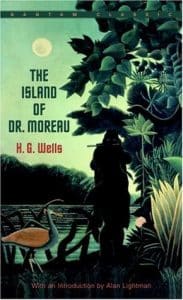
A classic mystery novel in every sense of the word. In The Island of Dr. Moreau, a shipwrecked gentleman named Edward Prendick, stranded on a Pacific island lorded over by the notorious Dr. Moreau, confronts dark secrets, strange creatures, and a reason to run for his life. While this riveting tale was intended to be a commentary on evolution, divine creation, and the tension between human nature and culture, modern readers familiar with genetic engineering will marvel at Wells’s prediction of the ethical issues raised by producing “smarter” human beings or bringing back extinct species.
6. The Andromeda Strain by Michael Crichton
The man who gave us Jurassic Park also wrote a book based on the limitations of our science when it comes to dealing with outbreaks of unknown diseases. The United States government is given a warning by the pre-eminent biophysicists in the country: current sterilization procedures applied to returning space probes may be inadequate to guarantee uncontaminated re-entry to the atmosphere. Two years later, seventeen satellites are sent into the outer fringes of space to collect organisms and dust for study. One of them falls to earth, landing in a desolate area of Arizona. Twelve miles from the landing site, in the town of Piedmont, a shocking discovery is made: the streets are littered with the dead bodies of the town’s inhabitants, as if they dropped dead in their tracks.
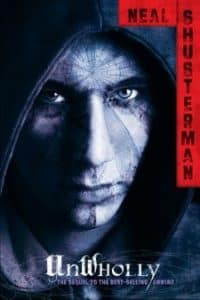
The series follows the lives of teens whose lives are no longer their own, as they are seen as little more than walking organ donors. Cam is a product of unwinding (organ donation); made entirely out of the parts of other unwinds, he is a teen who does not technically exist. A futuristic Frankenstein, Cam struggles with a search for identity and meaning and wonders if a rewound being can have a soul. And when the actions of a sadistic bounty hunter cause Cam’s fate to become inextricably bound with the fates of Connor, Risa, and Lev, he’ll have to question humanity itself. Rife with action and suspense, this riveting companion to the perennially popular Unwind challenges assumptions about where life begins and ends—and what it means to be alive.
8. Beggars in Spain by Nancy Kress
The future holds beautiful and terrible possibilities when it comes to genetically engineering humans. In this future, some people need no sleep at all. Leisha Camden was genetically modified at birth to require no sleep, and her normal twin Alice is the control. Problems and envy between the sisters mirror those in the larger world, as society struggles to adjust to a growing pool of people who not only have 30 percent more time to work and study, but are also highly intelligent and in perfect health. The Sleepless gradually outgrow their welcome on Earth, and their children escape to an orbiting space station to set up their own society. However, with the conspiracy and revenge that unwinds, the world needs a little preaching on tolerance.
9. L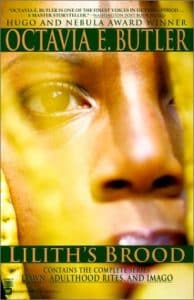
One of the best written series of the 21st century that deals with extraterrestrials in a way that is believable and highly disturbing, Octavia Butler weaves a story on how the self-destructive human race is given a second chance. Lilith Iyapo is in the Andes, mourning the death of her family, when war destroys Earth. Centuries later, she is resurrected — by miraculously powerful unearthly beings, the Oankali. Driven by an irresistible need to heal others, the Oankali are rescuing the dying planet by merging genetically with mankind. But Lilith and all humanity must now share the world with uncanny, unimaginably alien creatures: their own children.
10. Any Book by Robin Cook
This list would not be complete without the author who put medical thrillers on the literary map. Be it Brain or Coma or Chromosome 6, his books show the shortfallings of the biotechnological field and the thrills of dealing with something as unpredictable as the human body and how it can effectively topple entire nations. His successful combination of medical fact with fantasy have made many of his books New York Times Best Sellers and have remained favourites of the bioscience community for years. Cook’s medical thrillers are designed, in part, to keep the public aware of both the technological possibilities of modern medicine and the ensuing ethical problem.
Did your favourites make the list? Do you think another book should be on the list? Or have we piqued your interest to read one of these? Comment below and let us know.
Happy Reading!



























